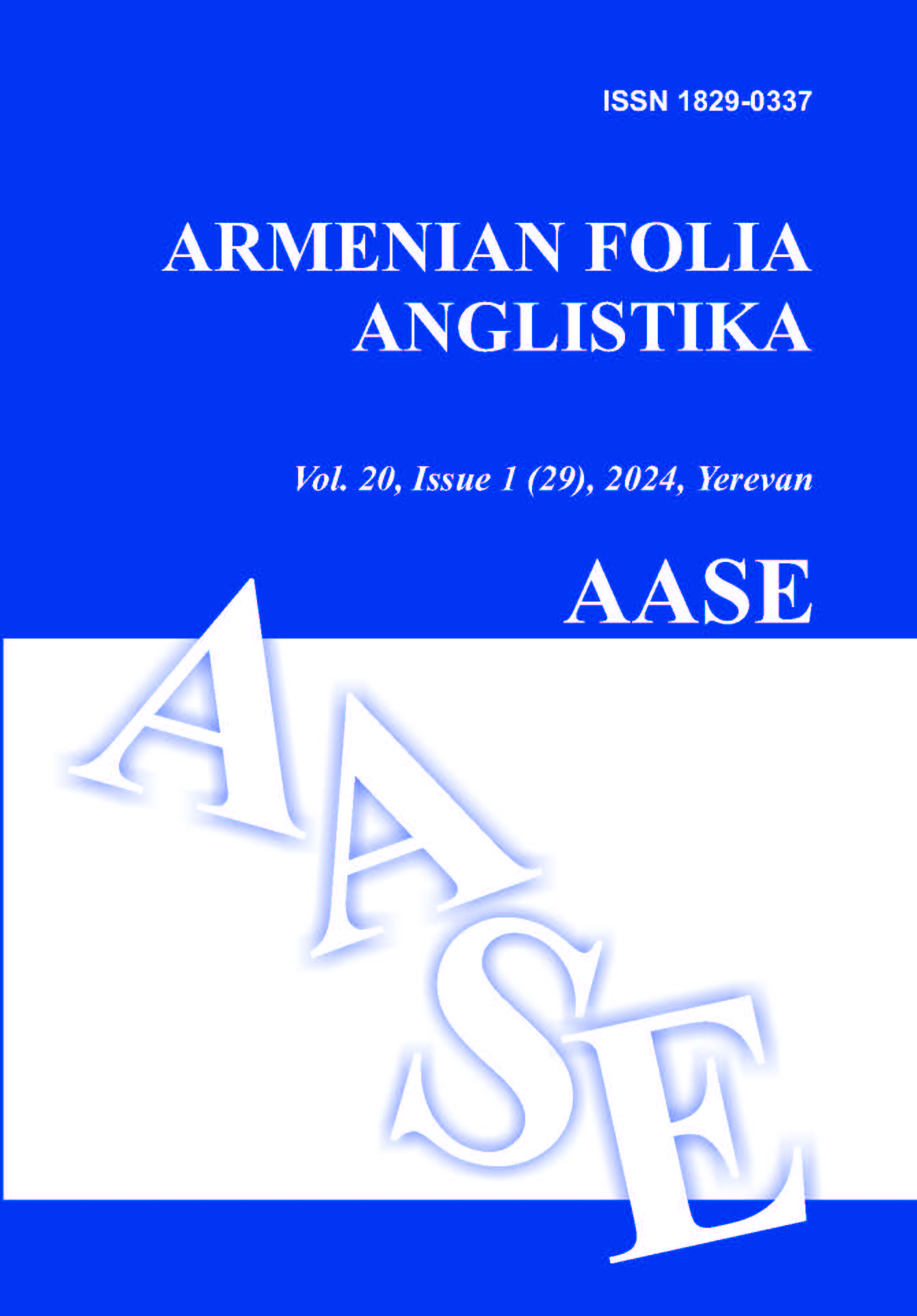EXPLORING THE COGNITIVE DIMENSIONS OF LANGUAGE ACQUISITION
DOI:
https://doi.org/10.46991/AFA/2024.20.1.13Keywords:
Cognitive Linguistics, cognitive models, mental processes, language processing and acquisition, usage-based theoryAbstract
Cognitive Linguistics, as an expanding discipline in language study, delves into language as a mental phenomenon, presenting a holistic approach that integrates linguistic and cognitive elements. Unlike traditional linguistics, which scrutinizes syntactical patterns, word structures, grammar rules, phonology, semantics, and lexical meanings, Cognitive Linguistics offers a comprehensive model that interweaves various closely connected theories. This study seeks to elucidate the manifestations of Cognitive Linguistics in language, providing scholars with a discerning analysis of existing theories. Furthermore, employing methods of descriptive and comparative analysis, this study aims to demonstrate the impact of Cognitive Linguistics on language processing and acquisition. It highlights its significance in second language acquisition while elucidating the underlying mental processes involved. The paper offers a succinct overview of this evolving discipline, encapsulating its unique characteristics within the encompassing term Cognitive Linguistics.
Downloads
References
Barcelona, A. & Valenzuela, J. (2011). An Overview of Cognitive Linguistics. Spain: University of Cordoba. University of Murcia, January, 2-26.
Gries, S. T., & Wulff, S. (2009). Psycholinguistic and corpus- linguistic evidence for L2 constructions. Annual Review of Cognitive Linguistics, 7, 163 – 186.
Luo, H. (2021). Cognitive Linguistics and second language acquisition. Routledge Handbook of Cognitive Linguistics, April, 556-567.
Kecskes, I. (2000). A Cognitive-pragmatic approach to situation-bound utterances. Journal of Pragmatics, 32 (5), 605-625.
Kravchenko, A. V. (2002). Cognitive Linguistics as a methodological paradigm. In B. Lewandowska-Tomaszczyk, & K. Turewicz (Eds.). Cognitive Linguistics Today (pp. 41-55). Frankfurt/Main: Peter Lang.
Lemmens, M. (2015). Cognitive Semantics. London & New York: Routledge, April, 90-105.
Mestre, E. V., & Pastor, M. L. C. (2012). A pragmatic analysis of errors in university students’ writings in English. English for Specific Purposes World, 35(12), 1-13.
Rababah, A.G. (2022). Cognitive strategies employed in tackling lexical problems in second language learning: A Psycholinguistic Study. Journal of Language Teaching and Research, 13(3), August, 2-8.
Rao, C. S (2021). Cognitive Linguistics: an approach to the study of language and thought. Journal for Research Scholars and Professionals of English Language Teaching, 24(5), March, 1-9.
Reynolds, R., Janda, L., & Nesset, T. (2022). A cognitive linguistic approach to analysis and correction of orthographic errors. Russian Journal of Linguistics, 26(2), 391-408.
Robinson, P., & Ellis, N. C. (2008). Handbook of Cognitive Linguistics and second language acquisition. New York and London: Routledge, 306-425.
Downloads
Published
Issue
Section
License
Copyright (c) 2024 Author(s)

This work is licensed under a Creative Commons Attribution-NonCommercial 4.0 International License.














